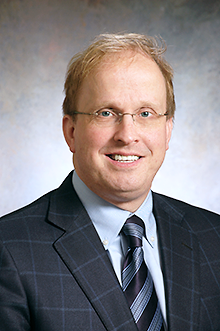N-Acetylcysteine May Help Patients Resist Urge to Pick Skin
Abstract
After 12 weeks, patients taking the natural agent reduced skin-picking symptoms by about twice as much as patients taking placebo, offering some therapeutic hope for a condition with no approved medications.
Although excoriation (skin-picking) disorder is believed to affect up to 5 percent of the population, the causes of the disorder remain poorly understood, and treatment options are limited.

Though its long-term impact on mood and quality of life remains uncertain, N-acetylcysteine appears to offer robust relief of the skin-picking behavior of excoriation disorder, according to Jon Grant, J.D., M.D.
“There are no approved medications for SPD [skin-picking disorder], and even the literature on behavioral therapies is fairly sparse,” explained Jon Grant, J.D., M.D., M.P.H., a professor of psychiatry and behavioral neuroscience at the University of Chicago. He has been studying skin-picking and related compulsive disorders for many years.
Grant led a study that was published March 23 in JAMA Psychiatry suggesting N-acetylcysteine—a precursor to the antioxidant enzyme glutathione—may decrease skin-picking behaviors in people with the disorder.
As part of a 12-week placebo-controlled trial, Grant and his colleagues randomly assigned 66 adults (aged 18 to 65; 90 percent female) with a DSM-5 diagnosis of excoriation disorder to take daily supplements of N-acetylcysteine (1,200 mg/day to 3,000 mg/day) or placebo.
After 12 weeks, participants taking N-acetylcysteine had an average 38.3 percent reduction in skin-picking symptoms (as indicated by the modified Yale-Brown Obsessive Compulsive Scale) compared with 19.3 percent for the placebo group. In addition, 47 percent of the patients taking N-acetylcysteine showed a significant improvement on the Clinical Global Impression-Severity Scale after 12 weeks compared with 19 percent of the placebo group.
Treatment with N-acetylcysteine failed to produce statistically significant improvement in measures of psychosocial functioning or quality of life—a finding that Grant told Psychiatric News is not surprising, given the short duration of the study.
“While the treatment seems to help stop the behavior, your skin needs more time to clear up all the residual scars, so it might be natural that these patients may still feel anxious or stressed,” he said. “We hope to carry out additional studies that will have more people and a longer duration to address this very question, as well as make sure there are no long-term safety issues.”
The issue of safety is especially cogent, Grant said, as N-acetylcysteine is something that can be purchased over the counter.
“Reporting on natural products is always tricky because someone might read that we used 3,000 mg a day and saw symptom improvements with no ill effects and think, ‘If 3,000 mg is good, maybe 30,000 mg is better,’” he said. “That’s a caveat every clinician should raise with a patient in a discussion of N-acetylcysteine or a similar compound; just because it’s all-natural, it doesn’t necessarily mean it’s safe.”
Grant noted recent studies of N-acetylcysteine suggest the agent does not adversely react with any known psychotropic drugs. In the current study, about one-third of the participants were taking psychiatric medications, and there were only a few adverse events reported by patients taking N-acetylcysteine, including nausea, dry mouth, constipation, and dizziness.
Previous studies by Grant have found that N-acetylcysteine reduces other compulsive behaviors, including trichotillomania, a hair-pulling disorder with familial, clinical, and biological links to skin-picking disorder.
Other studies have suggested that compulsive and habitual disorders, including addictions, may arise from defective signaling of the neurotransmitter glutamate, and N-acetylcysteine—in addition to its antioxidant properties—is known to increase the levels of glutamate in the brain.
Grant noted that there is still a lot of work needed to understand the connection between glutamate signaling and compulsion, but he said he believes this work may ultimately offer hope for a patient population who has had limited treatment options.
Great American Health, a U.S. nutritional supplement company, provided theN-acetylcysteine that was used in this study. ■



